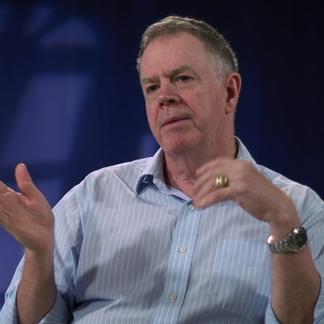
James F. Keenan, S.J., a moral theologian, is the Canisius Professor at Boston College.
Pope Benedict XVI's recent statements on the use of condoms to spread AIDS signals an important shift in the church's approach to this vexed issue. In 2000, two Jesuits--a doctor and a theologian--wrote an article for America detaling what they perceived to be tolerant signals coming from Rome on the use of condoms. Citing an article in L’Osservatore Romano, they argued that the Roman Curia was more tolerant on the matter than individual bishops:
While many readers may be surprised by the article’s tolerance, we are not. Admittedly, the Vatican has intervened otherwise, as in 1988, when the Congregation for the Doctrine of the Faith raised questions about the U.S. Catholic Conference’s pastoral letter The Many Faces of AIDS: A Gospel Response (1987), and again in 1995, when the same congregation acted against a resource pack on H.I.V. education published with an imprimatur by the archbishop of St. Andrews and Edinburgh. However, health care workers and moral theologians have encountered an implicit tolerance from the Roman Curia when they have first asserted church teaching on sexuality and subsequently addressed the prophylactic issue. For instance, more than 25 moral theologians have published articles claiming that without undermining church teaching, church leaders do not have to oppose but may support the distribution of prophylactics within an educational program that first underlines church teaching on sexuality. These arguments are made by invoking moral principles like those of “lesser evil,” “cooperation,” “toleration” and “double effect.” By these arguments, moralists around the world now recognize a theological consensus on the legitimacy of various H.I.V. preventive efforts.



